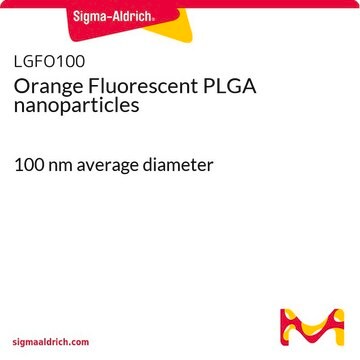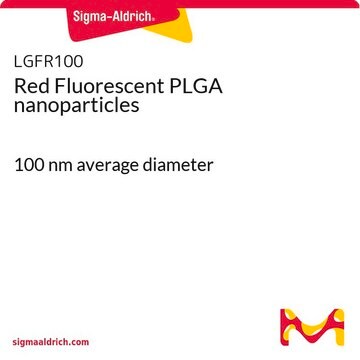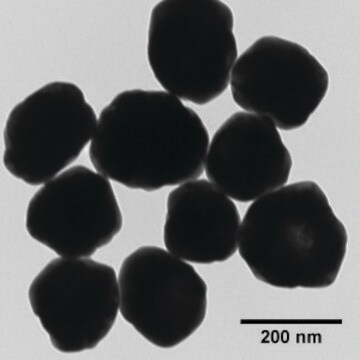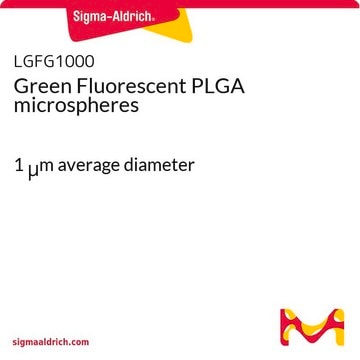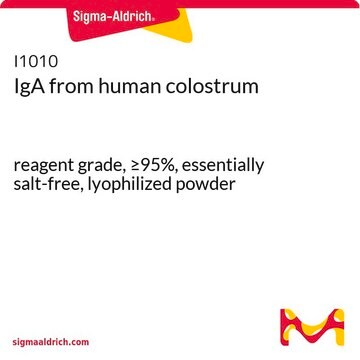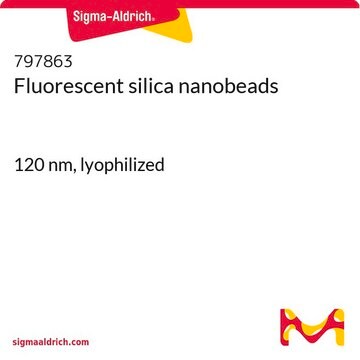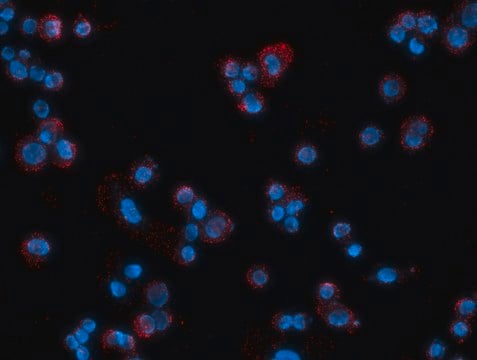805211
Green Fluorescent PLGA nanoparticles
200 nm average diameter
Synonym(s):
Degradex® Fluorescent PLGA
About This Item
Recommended Products
description
Excitation/emission: 460/500 nm
Quality Level
form
powder
average diameter
200 nm
density
1.3 g/cm3
shipped in
wet ice
storage temp.
−20°C
Looking for similar products? Visit Product Comparison Guide
General description
To re-constitute:
- Remove the product from freezer.
- Wait until temperature rises to the ambient temperature.
- Add DI water or buffer to the container.
- Vortex and sonicate for 5 minutes to ensure the microspheres are well suspended.
Application
Legal Information
Storage Class Code
11 - Combustible Solids
WGK
WGK 3
Flash Point(F)
Not applicable
Flash Point(C)
Not applicable
Certificates of Analysis (COA)
Search for Certificates of Analysis (COA) by entering the products Lot/Batch Number. Lot and Batch Numbers can be found on a product’s label following the words ‘Lot’ or ‘Batch’.
Already Own This Product?
Find documentation for the products that you have recently purchased in the Document Library.
Customers Also Viewed
Articles
Study on how Degradex® PLGA microspheres and nanoparticles can be used for drug delivery research and formulation development.
Polymeric antioxidants show promise in drug delivery with superior bioavailability and antioxidant potential.
Biomaterials science integrates smart materials into biological research, requiring a deep understanding of biological systems.
Our team of scientists has experience in all areas of research including Life Science, Material Science, Chemical Synthesis, Chromatography, Analytical and many others.
Contact Technical Service

